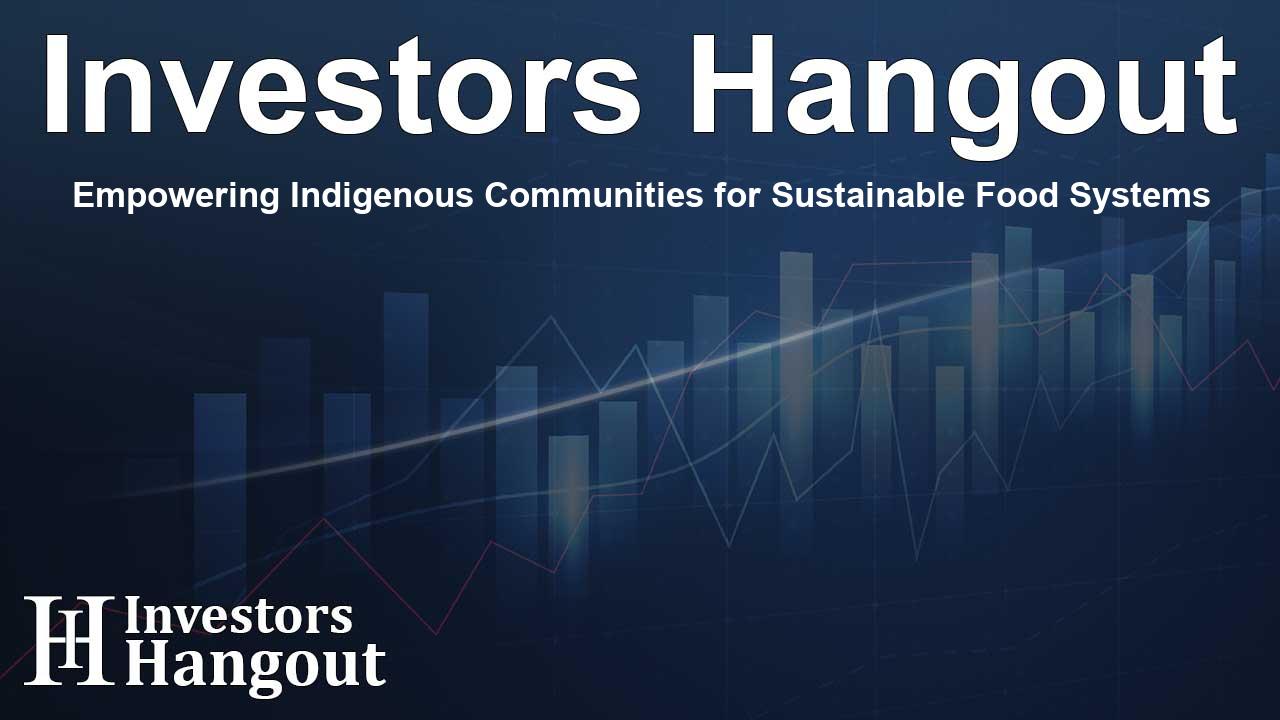Empowering Indigenous Communities for Sustainable Food Systems

Empowering Indigenous Leadership in Food Systems
In recognizing the vital role of Indigenous communities, Heifer International calls for a transformative approach to food systems that integrates their leadership at all levels. This initiative comes as part of Heifer's commitment to advocate for sustainable practices to combat food insecurity and climate challenges facing the world today.
The Importance of Indigenous Knowledge
Indigenous peoples possess unique wisdom that has been passed down through generations, enabling them to cultivate food in harmony with the environment. Their connection to the land and ecosystems equips them with the understanding needed to address current challenges, including climate change. Heifer International emphasizes the necessity of recognizing and implementing Indigenous knowledge in sustainable food practices.
Recognizing Rights and Leadership
To facilitate this transformation, it is essential to protect Indigenous rights. This involves safeguarding access to essential resources such as land, seeds, and water. By involving Indigenous leaders in decision-making processes regarding food governance, we can create a more equitable food system that benefits all.
Implementing Sustainable Practices
As global climate concerns grow, there is a pressing need for sustainable agricultural practices. Indigenous communities are at the forefront of this movement, using regenerative techniques and biodiversity stewardship to create resilient food systems. Heifer International supports these efforts by channeling funding directly to Indigenous-led initiatives and ensuring that their voices are heard in policy discussions.
Paths to Sustainable Agriculture
Food insecurity continues to pose challenges around the globe, affecting millions. Indigenous peoples offer innovative solutions to these crises through their practices that promote ecological balance and food sovereignty. The principles of regenerative farming, circular economies, and biodiversity are essential for creating a future where everyone can access nutritious food.
Celebrating Indigenous Female Leaders
Women in Indigenous communities play a pivotal role in revitalizing food systems and advocating for their rights. Leaders like Marta Choc from Guatemala highlight the changes occurring within their communities, where women are now taking on vital roles in agriculture and decision-making. Their contributions drive forward a narrative of hope and resilience.
From Local to Global: Expanding Influence
Indigenous communities extend their impact from regions across Latin America, Asia, and Africa, cultivating native crops and restoring degraded lands. By reviving ancestral practices and knowledge, they not only combat food insecurity but also ensure the preservation of cultural heritage. Heifer International acknowledges that transforming food systems necessitates respecting Indigenous rights, dignity, and leadership.
Advocacy and Future Steps
With critical climate discussions looming, Heifer International is dedicated to championing Indigenous solutions that promote agroecology and enhance community resilience. The pathway to sustainable change is intertwined with honoring the contributions of Indigenous peoples, as their leadership is integral to shaping healthier food systems.
Frequently Asked Questions
What is the main goal of Heifer International?
Heifer International aims to end hunger and poverty sustainably while caring for the Earth by empowering communities through agricultural initiatives.
How does Indigenous leadership contribute to food systems?
Indigenous leadership provides invaluable knowledge and practices that promote sustainability, resilience, and respect for natural ecosystems.
Why is it important to protect Indigenous rights?
Protecting Indigenous rights ensures that their voices and needs are included in decision-making processes, leading to equitable and just food systems.
What are some sustainable practices promoted by Indigenous communities?
Indigenous communities often utilize regenerative farming, biodiversity stewardship, and ancestral knowledge to cultivate food sustainably and restore ecosystems.
How can people support Indigenous-led initiatives?
Supporting Indigenous-led initiatives involves advocating for their rights, channeling funding, and recognizing their expertise in sustainable agriculture.
About The Author
Contact Kelly Martin privately here. Or send an email with ATTN: Kelly Martin as the subject to contact@investorshangout.com.
About Investors Hangout
Investors Hangout is a leading online stock forum for financial discussion and learning, offering a wide range of free tools and resources. It draws in traders of all levels, who exchange market knowledge, investigate trading tactics, and keep an eye on industry developments in real time. Featuring financial articles, stock message boards, quotes, charts, company profiles, and live news updates. Through cooperative learning and a wealth of informational resources, it helps users from novices creating their first portfolios to experts honing their techniques. Join Investors Hangout today: https://investorshangout.com/
The content of this article is based on factual, publicly available information and does not represent legal, financial, or investment advice. Investors Hangout does not offer financial advice, and the author is not a licensed financial advisor. Consult a qualified advisor before making any financial or investment decisions based on this article. This article should not be considered advice to purchase, sell, or hold any securities or other investments. If any of the material provided here is inaccurate, please contact us for corrections.
